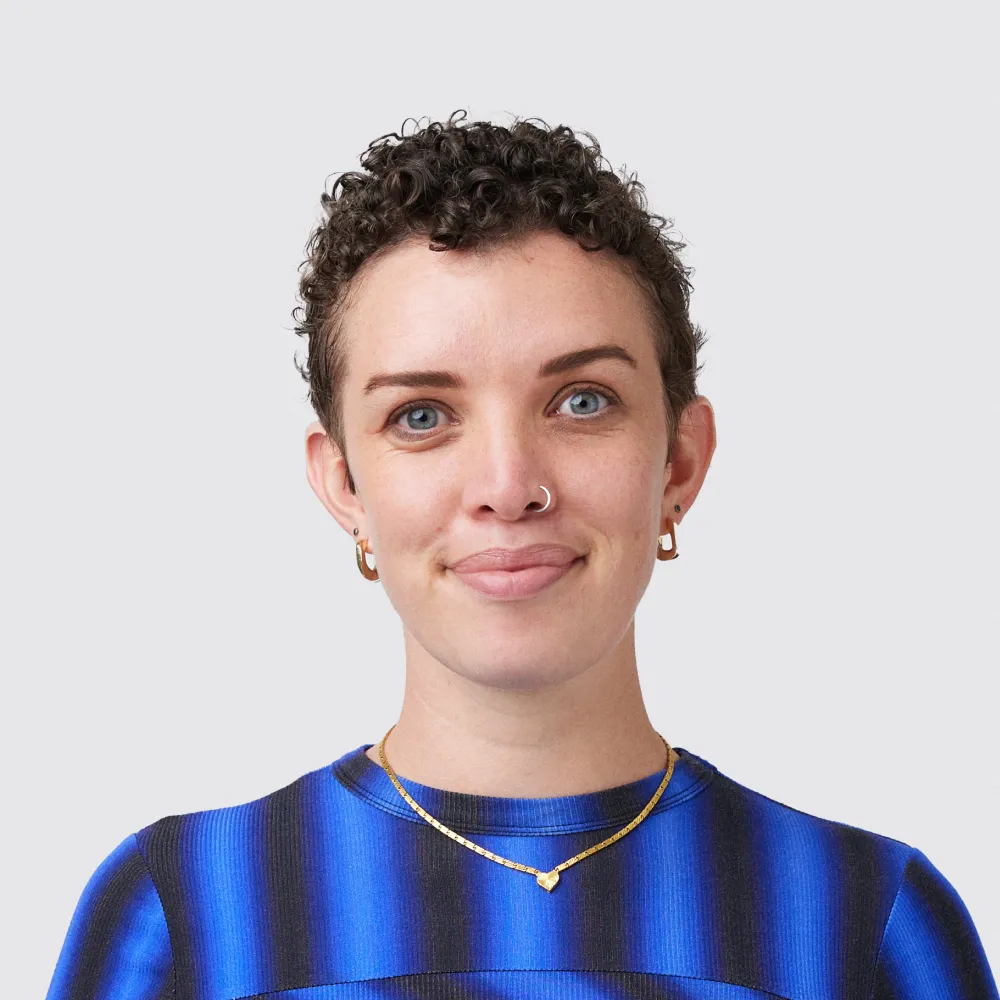Over the past 20 years, there have been big changes in the way the LGBTIQ community have found support. Within this community, a special space has been carved out for young people, and the creators of this space have been the youth themselves.
Steph Little, Senior Producer at Today sat down with Micah Scott, CEO at Minus18, about their journey from a small, volunteer-run organisation and what it means to foster resilience through compassion and the creation of safe spaces. The journey hasn’t always attracted supporters; but kindness, glitter and rainbows have certainly helped to encourage broader understanding.
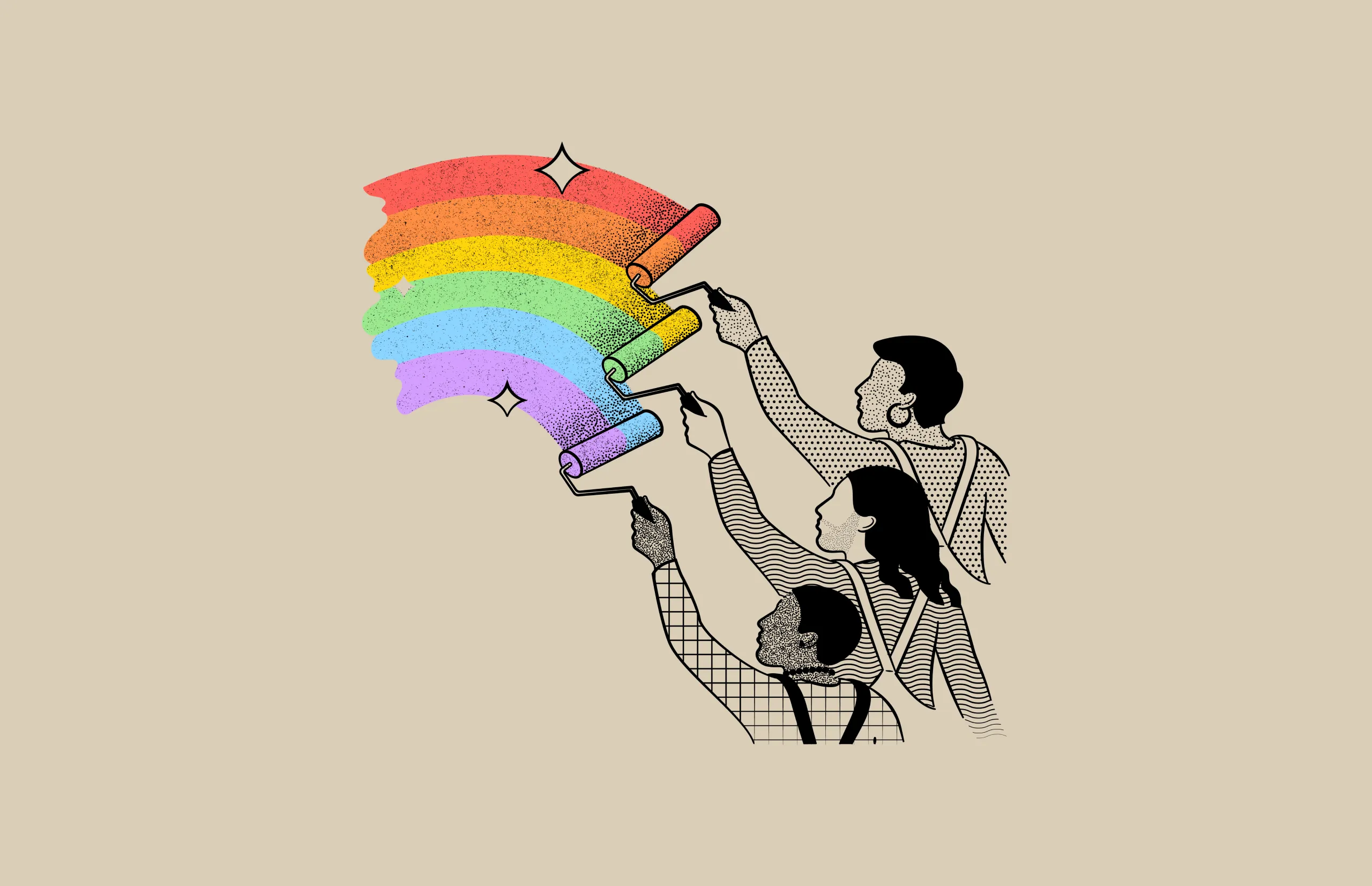
I'm interested to hear the story about where and how Minus18 started.
Minus18 has had two lives over the last 20 years. Back in 1999, a mum found out that her queer son got a fake ID and went out to an overage club. She realised that if you're under the age of 18 you don't have a lot of spaces you can go to make friends and make connections, and that's all anyone really wants out of life. So she worked with her son and other parents to put on events for young queer people who were under the age of 18.
And from there the events grew. They started with around 40 young people going along back in the '90s, to underage dance parties on Commercial Road in Prahran. From there it grew to 100 young people to 200 people, and then in around 2007, we had 500 young people coming to events. Which is huge!
I grew up on the outskirts of Melbourne down the end of the Lilydale line and I didn't have any queer friends at all. As a 16-year-old, I went along to one of these Minus18 events and I walked in and I thought, “This is a life-changing moment for me.” Suddenly after that one night, I had a whole bunch of friends who were just like me and the resilience and connection I created through that was incredible.
I started as a volunteer. We kept running events and started to grow them even more, and then in 2011, we realised that we had a really amazing network of young people that other organisations around Australia were really struggling to create and we thought, “Well, we've got to do something special with this.” So we created the Minus18 Foundation, which is the charity that we have today.
We went from a volunteer-led movement to a more concrete charity that not only hosts events and is a space for young people, but takes that message of inclusion and safety out into the rest of the world. We run education workshops, campaigns and advocacy all around the country with the aim of creating a more inclusive Australia.
Suddenly after that one night, I had a whole bunch of friends who were just like me and the resilience and connection I created through that was incredible.
Micah Scott
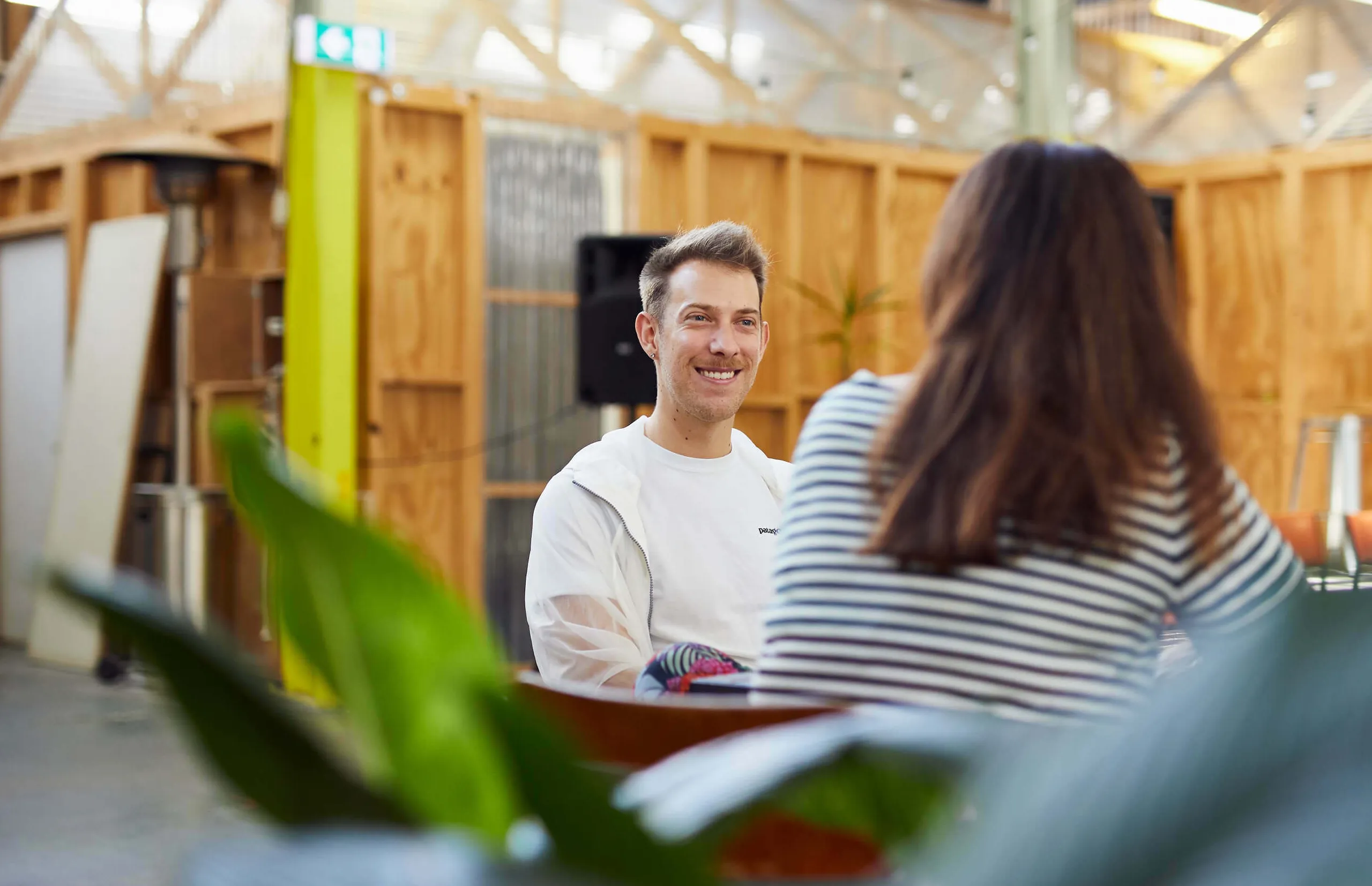
What a fantastic story and what a journey for you personally as well!
It is, it's been a long one. I've been at Minus18 for 11 years now, which is quite a long time. I’ve been here most of my life, most of my professional life at least.
How has the organisation changed since that day that you turned up your first event and thought, “Wow, this is special,”?
For me, the biggest difference in Minus18 has been around the evolution from an organisation that focuses on the internal world—so an organisation that looks at young people and how we can create a private world—and then taking that world to the rest of Australia.
We went from events that have maybe 5,000 young people coming each year and said, “There's more to supporting LGBTIQ youth than just an event every couple of months.” Young people are in schools, young people are in workplaces, young people have families, and we as an organisation need to be supporting all areas of life that young people have access to.
That's been the biggest shift for us, to go from just talking to young people to talking to all of society. Which is a pretty big goal, as you can imagine.
Events are huge now, we were only running events in Melbourne and now we run events in Melbourne, Sydney and Adelaide, which is really amazing. I think last year around half a million people accessed our website and digital resources. Which for us is enormous.
We're really noticing we're in a time of LGBTIQ inclusion being a really hot topic and for an organisation like us, it's important to be visible throughout that and important to be reaching as many people as possible.
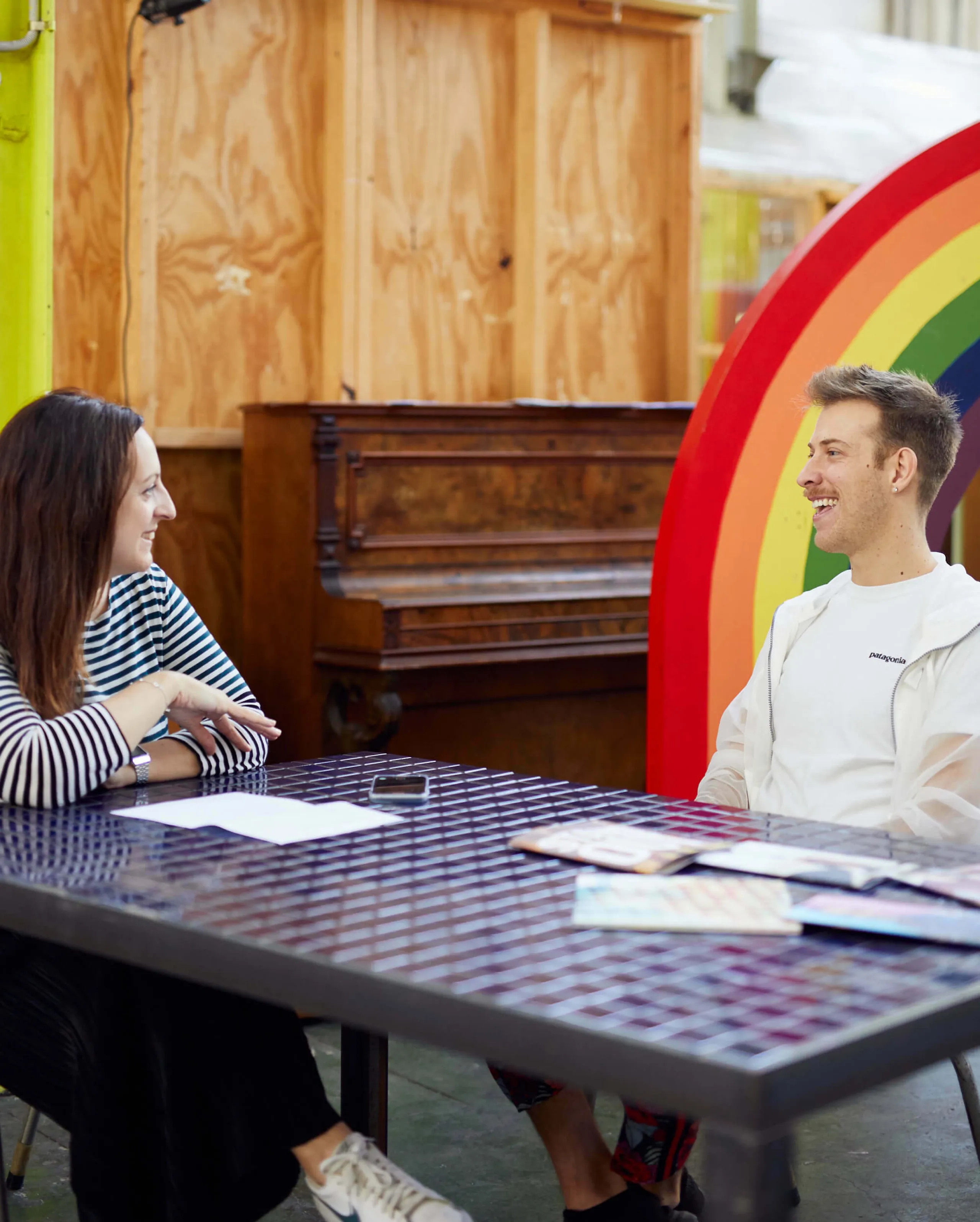
Was there a moment, Micah, when you felt like this was becoming a movement and something that was really building momentum?
So many moments. One highlight was when we ran our first queer formal back in 2010. I don't know if you remember, but back then there were quite a lot of media articles around about young people not being allowed to take a same-sex partner to their high school formal and there was a lot of controversy around that.
We just ran with the idea, we decided we were going to run a formal for queer young people. We ran the event around here in Collingwood, and we put it online not being sure how many people would come, and we had 200 queer young people come along to that event.
I saw someone at the event who seemed a little bit uncomfortable, or not quite at home, and I went up to him and started a conversation, “How's your night going? How is everything?” He shared with me that he had come to support his queer friend and he wasn't gay himself. But his friend had come out to him at school and they'd heard about this event and he really wanted to support his friend.
Looking at what we were trying to achieve, it was that connection and recognising that we weren't just creating a space for queer young people, but all young people were starting to come and access that space. We recognised the power of that community that we were creating. That was sort of the early days.
We run the International Day against Homophobia, Biphobia, Interphobia and Transphobia , which is all about supporting the LGBTIQ community. It’s on May 17 and it's been simmering along in the background. This year, we encouraged organisations and schools to host a rainbow day, so to host an assembly or a workplace lunch and learn about LGBTIQ inclusion and use the day as a real milestone.
We would normally get around 50 to 100 to 200 workplaces getting in touch and wanting to get involved, and this year we quadrupled that and had close to 1,000 workplaces around the country. We had organisations like BHP, who launched their LGBTIQ inclusion strategy and support for Minus18. And suddenly we were looking around the world now and sending out information packs to organisations globally, in Ireland and in South America.
For us being a small team of seven staff and having a global impact; those are the moments where you sit back and really value the work you're doing.
When we look at our website traffic as well, a lot of the articles and the resources that we put out are really informative for anyone, no matter where you are. You can access it whether you're in a regional location in Australia, but we can also see the footprint of all the people around the world reading our content and looking into what we do and contacting us to learn about our model. That's a really incredible feeling as well.
Could you talk a little bit about Minus18 being a mechanism for change in youth, the idea of young people feeling safe, supported and the difference that you feel you really make as an organisation?
I think Minus18 being a mechanism and a vehicle for youth empowerment can really be summed up in a conversation we had with a parent a couple of months ago.
We get to see a lot of young people in our programs, but it's really just a snapshot of their life. This parent gave our office a call and they spoke to me about how their child had come out at school. They were in a regional area and they hadn't really made many friends and hadn't found a lot of support. They felt quite different and really struggled to find that connection with their peers. Any parent wants and has a desire for their child to be happy and they want their child to feel supported and safe. So this parent had been looking around and taking them to different social groups, and then they found out about Minus18 and sent their child along to one of our programs. They said that when their child came home from that day that it was as though they had completely transformed. At the end of the day, they had made Instagram friends with a whole bunch of young people there and people who had gone through the exact same experience as them. They had planned the following week to go to the movies together and further develop those friendships.
It was a couple of weeks after the event when that parent called us and expressed this gratitude. It was something that they were at wit’s end about; they didn't know how to support their child. Something as simple as friendship and connection and the demonstration of how powerful that is; is really, really incredible.
What's the difference in public sentiment from when you started to the place that you are in now?
That's a really good question. The cultural shift and public shift of Minus18 has changed dramatically. Ten years ago we were entirely volunteer-led. I was a volunteer or working one day a week and I knew the power of what we were doing, but we really struggled to communicate and articulate that broadly.
We're an organisation of younger people and that doesn't always resonate with the broader community. So we have really focused on how we communicate to the community and the messaging that we use. As we've grown, the biggest power in what we do is trying to invite the community into our work by documenting our event, sharing photos, sharing the stories of young people who come along and being able to articulate the power of the Minus18.
A lot of what we do is behind closed doors to protect the privacy of the people that we work with. But it's so important that the broader community see our work and is supportive of the people we are working with.
Now we are getting messages from parents and we're having organisations come along and support our work because they see the power and the importance of supporting young people.
But it's not without its challenges either. We've had challenges with the Australian government talking about LGBTIQ young people—particularly trans young people—in a negative light. We've had programs like the Safe Schools Coalition, which we partnered with, be defunded or be written about negatively in broadsheets around the country. And that has sparked a lot of fear around some of the work that we're doing and a lot of misinformation as well, which is driven by ignorance.
As our profile is raised those are the types of challenges that we have to overcome and that's what we go up against every single day. For every message of support that we receive, we'll get a negative comment on our social media telling us to stop our work or calling us something vile and that's challenging to navigate. But it also, for us, solidifies exactly why we're doing what we're doing as well.
That sounds really challenging. How do you manage that at an organisation level? Getting that kind of feedback frequently would be emotionally tough on a person.
There are massive challenges with those negative comments, for us approaching it from the space of, well, at least it is not the young people who are experiencing those comments. If we can be a bit of a barrier and a shield, then that's a really great outcome for us.
But internally, as a team, the way we approach it is with humour. We love to respond to negative comments with a rainbow GIF or glitter emojis and really put it out there that this isn't something that phases us. This is exactly what we're set up to combat. For our public image as well, it can be important to shine a light on some of those negative comments too. We don't always delete them because it's important that our supporters see that we're not operating in a world of constant positivity. But that's something that we're trying to create, and it's something that we can create from the inside. If we can respond to that internally with humour and with kindness, then we hope that other people can see that and do the same. We want to lead by example.
We love to respond to negative comments with a rainbow GIF or glitter emojis and really put it out there that this isn't something that phases us. This is exactly what we're set up to combat.
Micah Scott
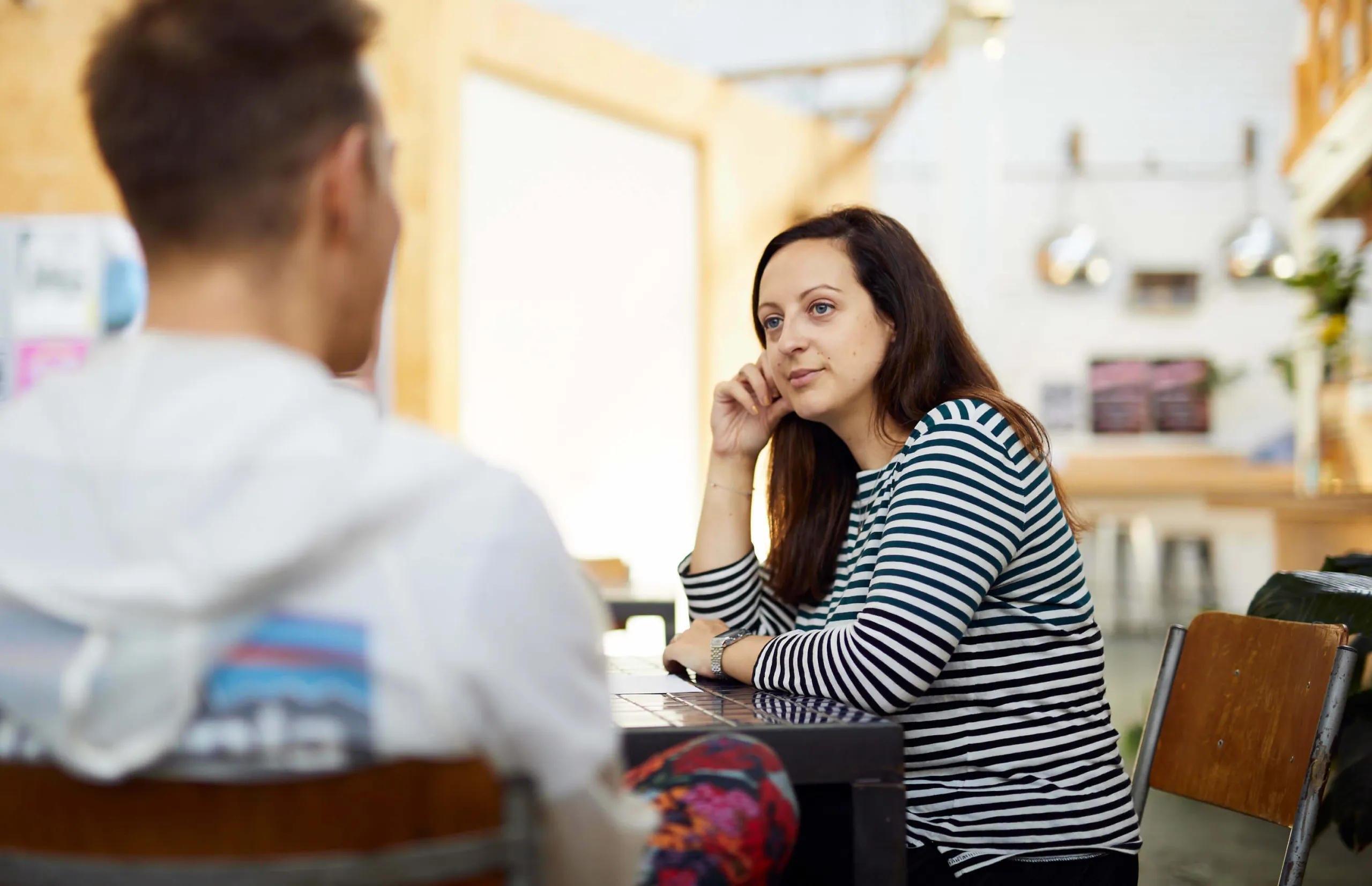
I'm interested to hear about the Minus18 board and some of the strategies that you use as a team to keep young people involved and keep your business inclusive.
For us as an organisation that is so youth-focused, this is really important. All of our volunteers are young people. We try to provide them with the opportunity to learn life skills and go through a program where they can feel more confident afterwards. We hope they can learn how to be involved in events, how to communicate professionally, and all those similar life skills that you don't always get the opportunity to learn.
At a more organisational level, our strategic plan is developed as a whole organisation by bringing young people on board and into the process. Most of our staff and board are under the age of 30 too.
Making sure that we have young voices represented is really important. It's something that we're constantly working towards and trying to refine as well because as you know, age has a time limit. We're constantly outgrowing ourselves and having to bring in new voices. That can be really challenging at times because we want to maintain the people that we've developed and we want to maintain that context and that local knowledge, but I think those fresh voices and perspectives keep us at the forefront of our movement. It means that the work that we're doing is connected to young people and youth attitudes—passions, social media that they're using—everything is constantly evolving. I'm 30 years old and there is a huge disconnect now between myself and younger people. So making sure that we are maintaining that connection is really essential to the work that we're doing.
Let's talk about the future. You’re moving into the Pride Building in St Kilda, which is really exciting. What does that actually mean for Minus18?
11 years ago when I was still a volunteer at Minus18, I would always have dream sessions with our volunteers where we would plan out what it was that we wanted to see for the organisation.
Some of those goals were really small. We wanted to see staff, we wanted to see paid people within the organisation… groundbreaking! We wanted to go to different areas of Australia—recognising that we're very lucky in Victoria—which we have done as we’ve started to run events in different cities around the country.
But one of the biggest dreams was that we had our own space and our own place where we could bring in young people. We wanted to have a home and a central base for our operations where young people could come by and hang out and frequently connect without having to wait for an event to be on. We dreamt of a home where they were always welcome and recognised that they could have support around the clock.
When the Pride Centre opens in St Kilda next year—amongst all these other LGBTIQ organisations—for us to be the youth organisation there and bring young people into that space, is not them just connecting with Minus18, it's them connecting with their whole community.
When you are 15 or 16 it can feel quite lonely when you realise that you're queer and you don't necessarily feel comfortable talking about that at school. It can really feel like there are all these people online who are there, but the real world is missing that connection. So to be that real-world connection is really exciting. It’s going to further enhance the young people that we engage with and the level of support that we can provide them.
We wanted to have a home and a central base for our operations where young people could come by and hang out and frequently connect without having to wait for an event to be on. We dreamt of a home where they were always welcome and recognised that they could have support around the clock.
Micah Scott

It sounds like it's going to be a big milestone for the organisation and for you as a team.
It's a huge milestone. To be somewhere new and to have somewhere that is custom and purpose-built for us and for our young people is a celebration of all the many, many hours of hard work that have gone into building this organisation. The reality of charities and not-for-profits is that a lot of the work is volunteered, it's done out of passion and goodwill. For this to have grown into a physical space is a real testament to the incredible people that have made this organisation come to life.
Our goal is that we will start a school-based excursion program. There'll be a historical archive at the Pride Centre, there'll be a queer radio station, there'll be areas that school excursions can visit. There'll also be an auditorium where we can run school workshops as part of the excursion experience.
Giving all students an opportunity to come and learn about our community is so exciting and I think it has the opportunity to create a really huge impact.
I was reflecting on the amazing Minus18 workshop that we had Today. A lot of my colleagues gave amazing feedback afterwards just around how open and honest Seb and Ben, the facilitators, were and how comfortable they were sharing their stories and educating us so inclusively. I imagine that there might be more challenging environments for your team to go into. How do your team work around those challenges and support each other through that?
Yes, that's a really good question. When it comes to our workshops, as I said, it's about taking our internal community to the rest of Australia and inviting people in. We're in a really fortunate position at Minus18 where we sit on the edge of the LGBTIQ community and the broader community, so we get to see both worlds in a little bit more detail than perhaps some other organisations.
What that means is that we really recognise some of those challenges and some of those barriers and that we work in a space where not everyone is going to agree with what we say—for a multitude of reasons—and at the end of the day, that's okay. We try to have the attitude that we're not there to tell anyone how to think, we're not there to tell them what they have to do; we're giving them information to become more informed and make their own conclusions.
We find that approaching it from that angle is a lot more vulnerable and a lot more open. It's a discussion and a conversation, and it’s approached from the perspective of kindness. Kindness is a value that resonates with anyone, and sometimes in any community, in any sort of political discussion, things can get heated and people can disagree, but that disagreement also comes with upset or hurt or anger. We try to allow room for that disagreement and approach it with positivity and sharing. At the end of the day, that has worked really well for us. It helps people to feel heard and given a space where we can work through some of the challenges, rather than shutting them down.
